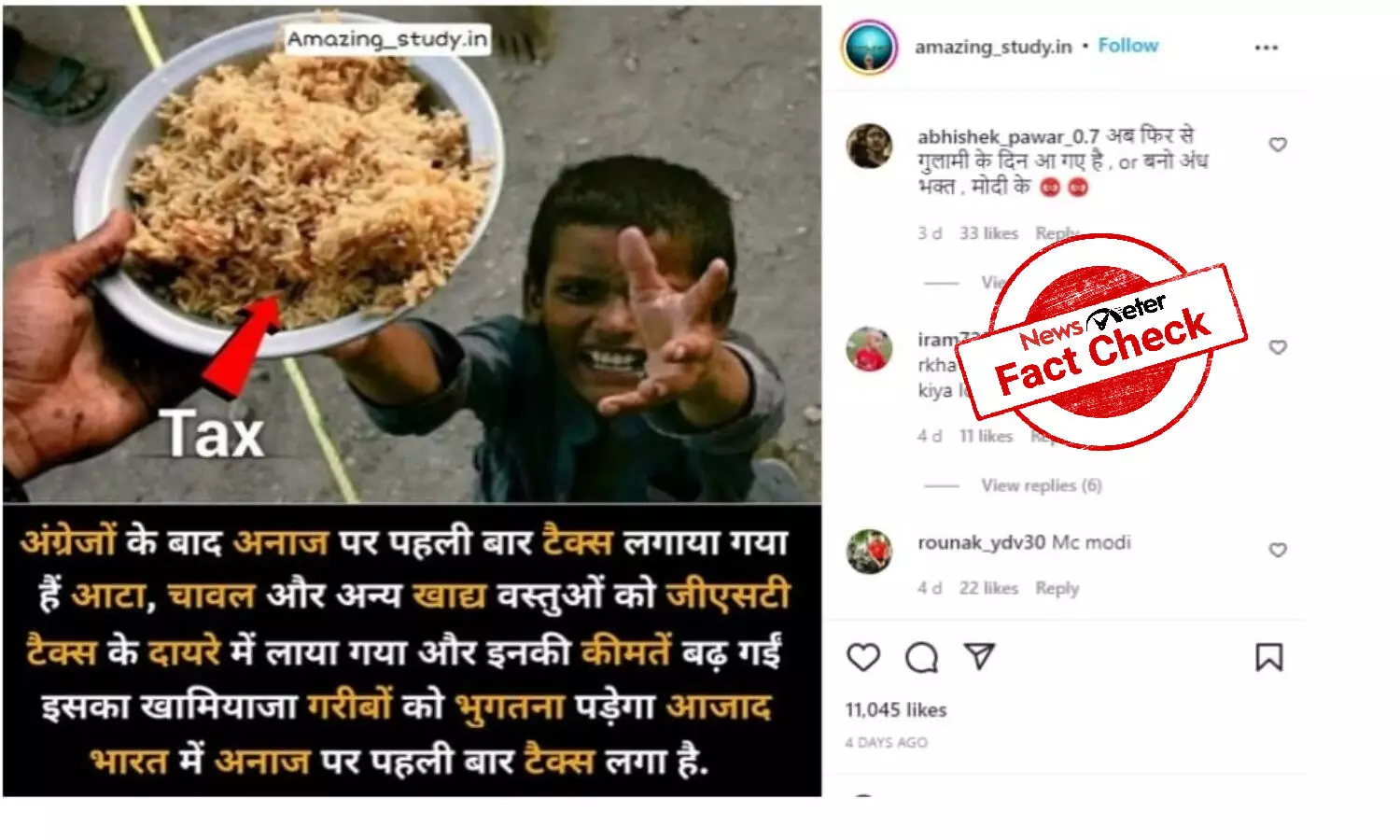Social media users are sharing a post claiming that food grains and flour have been taxed for the first time in Independent India.
Fact Check:
NewsMeter found the claim to be false.
We searched online for various pre-GST taxes on food grains and discovered that various states had been collecting VAT (Value Added Tax) on food grains such as rice/paddy, wheat, maize, and flour since 2005.
https://docs.google.com/document/d/1rXMhwktByEcRZ6XySLnQcNuGK7ObKlK7/edit?usp=drivesdk&ouid=111543616962722159765&rtpof=true&sd=true
On April 1, 2005, VAT was introduced into the Indian taxation system. Each state has its VAT law. The Andhra Pradesh VAT Act, 2005, for example, can be found here. Because VAT is listed by state, it may differ from one state to the next.
Similarly, these states' VAT on wheat, maize, flour, and other food items can be found here.
However, on July 1, 2017, the Goods and Services Tax (GST) replaced all existing Central and State indirect taxes such as VAT, excise duty, and service tax. In its 47th meeting, the GST council recommended that pre-packaged and labeled food items such as grains, curd, Lassi, Butter Milk, and so on be subject to GST.
Click here for VAT details
The revised GST rates for food grains and flour, as of July 18, 2022, can be found here.
We also found the Ministry of Finance clarification. "A single package of these items [cereals, pulses, flour, etc.] containing a quantity of more than 25 Kg/25 liter would not fall in the category of a pre-packaged and labeled commodity for GST and would therefore not attract GST. However, if for any reason, retailer supplies the item in loose quantity from such package, such supply by the retailer is not a supply of packaged commodity for GST levy," the ministry said.
